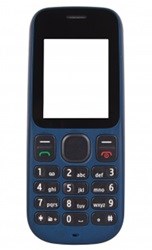Mobile rules in Africa

The Mindreader survey, which studied 42,000 consumers, found more than 90% of respondents use a laptop or desktop on a regular basis, compared with 56% who use a smartphone and just 33% who own a tablet.
It says these consumers are more likely to undertake a variety of online activities at home - whether the primary device for accessing the internet is the laptop or personal computer and where the hierarchy of screens comes into play (a bigger screen is better).
According to this data, advertising created specifically for the bigger screens of laptops and desktops has a larger audience and is more effective than advertising targeted for the smaller mobile phone screen.
Exception to the rule
Africa seems the exception to this rule. "With less accessibility to fixed line internet connections than in first-world markets, the possibility of having desktops, laptops and the like isn't always there," says Ross Hellinger, sales & marketing head at Incubeta, a local internet and media company. "By nature we have found a solution to this - mobile. A lack of infrastructure has been overcome, continually improving network coverage, making it easier and faster for more people every day."
The Mobile Marketing Association SA (MMASA) says in 2009, mobile became the most pervasive mass media in the country. In 2012, there were 14,9m mobile data users; currently there are 4,6 times more households with a cellphone than a computer.
So what's the difference between mobile internet advertising and computer or laptop based internet advertising?
"Though both are forms of digital marketing, they reach users on different devices," says Hellinger. "Traditional internet advertising reaches users on their desktop computers wherever internet is available. Typically this would range from work, home, internet cafés and university computer labs. Mobile advertising reaches users on devices ranging from mobile phones, whether they be feature phones or smart phones, as well as tablets."
Deeper conversation with target audience
MMASA chair Candice Goodman says mobile internet advertising allows for a deeper conversation with the target audience. "Traditional internet advertising only really lets you target a specific banner size and region, while mobile advertising (which includes non-internet related means such as texts, MMS and tags on a please call me) allows you to target the banner, region, operating system, handset, handset feature and much more - ensuring less wastage for the advertiser and hopefully better return on investment, due to the advert being shown to a more engaged audience."
Goodman says trying to use trends from Europe and the US to see what will happen in Africa would be useless.
"Africa is a mobile-first continent. The market here is very different to other continents and the challenges we face. Charging your flat battery of your smartphone is not a challenge you would face in first-world regions. In Africa it's a real factor to be considered, rural areas may have power outages or intermittent service. Using a feature phone ensures the battery lasts longer and requires less resources. These challenges have ensured we develop clever ways of reaching these users and allowing them to use our products, access social media and connect with each other. As data gets cheaper across the continent, access to mobile content through mobile TV, video, social media and so forth will strengthen Africa's bond to mobile being the first."
Research conducted by Informa Telecoms & Media, an African internet and media firm, suggests revenues generated by mobile advertising could reach almost US1,3bn by 2016. African mobile ad revenues hit $136m in internet search, display, mobile apps, downloads and streaming advertisements in 2012.
Ross believes mobile internet advertising is an underutilised marketing tool. "Most businesses opt to spend budgets on traditional desktop focused campaigns and not enough attention is paid to the mobile market. I'm hoping more agencies and brands start taking mobile more seriously, both as an acquisition tool and brand building exercise, and if more businesses adopted this movement, they'd get way more bang for their buck. The growth in the tablet market as an alternative to desktops and laptops is going to sway figures too, with more people being interested in having multiple mobile screens over a traditional desktop experience."
Source: Financial Mail via I-Net Bridge
Source: I-Net Bridge

For more than two decades, I-Net Bridge has been one of South Africa’s preferred electronic providers of innovative solutions, data of the highest calibre, reliable platforms and excellent supporting systems. Our products include workstations, web applications and data feeds packaged with in-depth news and powerful analytical tools empowering clients to make meaningful decisions.
We pride ourselves on our wide variety of in-house skills, encompassing multiple platforms and applications. These skills enable us to not only function as a first class facility, but also design, implement and support all our client needs at a level that confirms I-Net Bridge a leader in its field.
Go to: http://www.inet.co.za




















